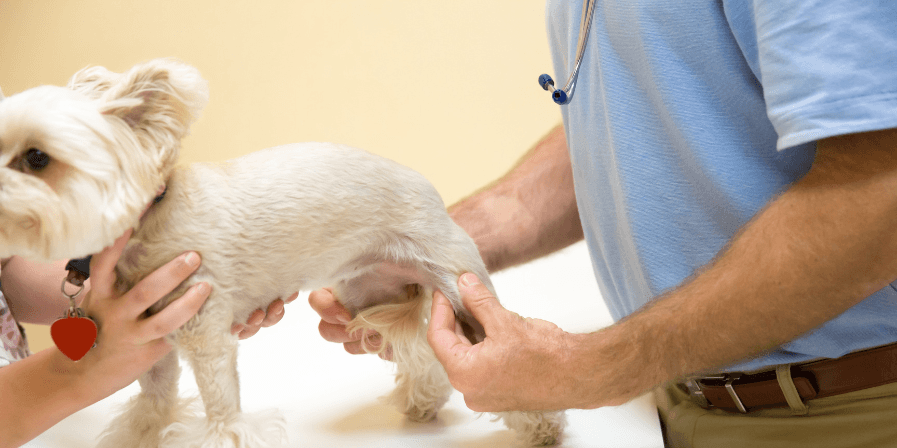Dogs With Joint Problems

Joint problems are common in dogs, particularly in larger breeds and older pets. These issues can significantly impact a dog's quality of life, making it essential for pet owners to understand the causes, symptoms, and treatment options available.
Joint problems are common in dogs, particularly in larger breeds and older pets. These issues can significantly impact a dog's quality of life, making it essential for pet owners to understand the causes, symptoms, and treatment options available.
Causes of Joint Problems in Dogs
- Genetics: Certain breeds are predisposed to joint issues due to their genetic makeup. For example, large breeds like German Shepherds, Labrador Retrievers, and Golden Retrievers are prone to hip and elbow dysplasia.
- Age: As dogs age, the wear and tear on their joints can lead to conditions such as osteoarthritis. Cartilage deterioration over time can cause pain and reduced mobility.
- Injury: Trauma or injuries, such as fractures or ligament tears, can result in joint problems. Common injuries include cruciate ligament tears, often seen in active or overweight dogs.
- Obesity: Excess weight puts additional strain on a dog's joints, accelerating the degeneration of cartilage and leading to joint issues.
- Inflammatory Conditions: Diseases such as rheumatoid arthritis or lupus can cause inflammation of the joints, resulting in pain and stiffness.
- Developmental Issues: Problems such as hip dysplasia and elbow dysplasia develop as puppies grow, often due to improper formation of the joint.
Symptoms of Joint Problems in Dogs
- Limping or Lameness
- Stiffness
- Reluctance to Move
- Swelling
- Whining or Crying
- Behavioral Changes
Treatment Options for Joint Problems in Dogs
- Weight Management: Maintaining a healthy weight is crucial. A balanced diet and regular exercise tailored to the dog's condition can reduce strain on the joints.
- Medications: • Non-Steroidal Anti-Inflammatory Drugs (NSAIDs) • Pain Relievers • Joint Supplements
- Physical Therapy: Physical therapy and rehabilitation exercises can strengthen the muscles around the joints, improve mobility, and reduce pain.
- Hydrotherapy for Dogs: Water-based exercises provide low-impact resistance, helping to build muscle strength without putting stress on the joints.
- Surgery: In severe cases, surgical options such as joint replacement or arthroscopy may be necessary. These procedures can correct joint abnormalities and improve function.
- Alternative Therapies: • Laser Therapy for Dogs • Physiotherapy for Dogs
- Environmental Modifications: • Orthopedic Beds: Provide better support for joints. • Ramps or Stairs: Help dogs avoid jumping, which can exacerbate joint problems. • Non-Slip Surfaces: Prevent slipping and further injury.
- Lifestyle Adjustments: • Moderate Exercise: Regular, low-impact activities like walking or swimming keep joints flexible and muscles strong without overloading the joints. • Rest Periods: Ensure your dog has adequate rest to avoid overexertion. Preventive Measures
- Regular Vet Check-Ups: Early detection and management of joint issues can prevent them from worsening. Regular veterinary examinations can help identify problems before they become severe.
- Appropriate Exercise: Avoid high-impact activities, especially for breeds prone to joint issues. Focus on moderate, consistent exercise to maintain joint health.
- Nutrition: Feed a balanced diet that supports joint health. Some commercial dog foods are specifically formulated for joint support.
- Breeder Practices: When choosing a puppy, select breeders who screen for genetic joint conditions to reduce the risk of inherited problems.
FAQ’S:
1.** How are joint problems diagnosed in dogs?** Joint problems are diagnosed through: • Physical Examination: The vet checks for pain, swelling, and range of motion. • X-Rays: Imaging to visualize joint structures and detect abnormalities. • MRI or CT Scans: Detailed imaging for complex cases. • Joint Fluid Analysis: Assessing fluid from the joint to diagnose inflammatory conditions
- Is surgery always necessary for dogs with joint problems? No, surgery is not always necessary. Many dogs respond well to non-surgical treatments like weight management, medications, and physical therapy. Surgery is usually considered for severe cases or when other treatments are not effective.
By understanding the causes, recognizing the symptoms, and exploring the available treatments for joint problems, you can help ensure your dog maintains a good quality of life despite these challenges. Regular veterinary care, combined with a proactive approach to managing their condition, can make a significant difference in your dog's comfort and mobility.
For bookings and inquiries, reach out to us at 9311560101 or www.dccpets.in. You can also visit our clinics for pet consultation services in Gurgaon, Delhi and Noida.


 How can we help?
How can we help?